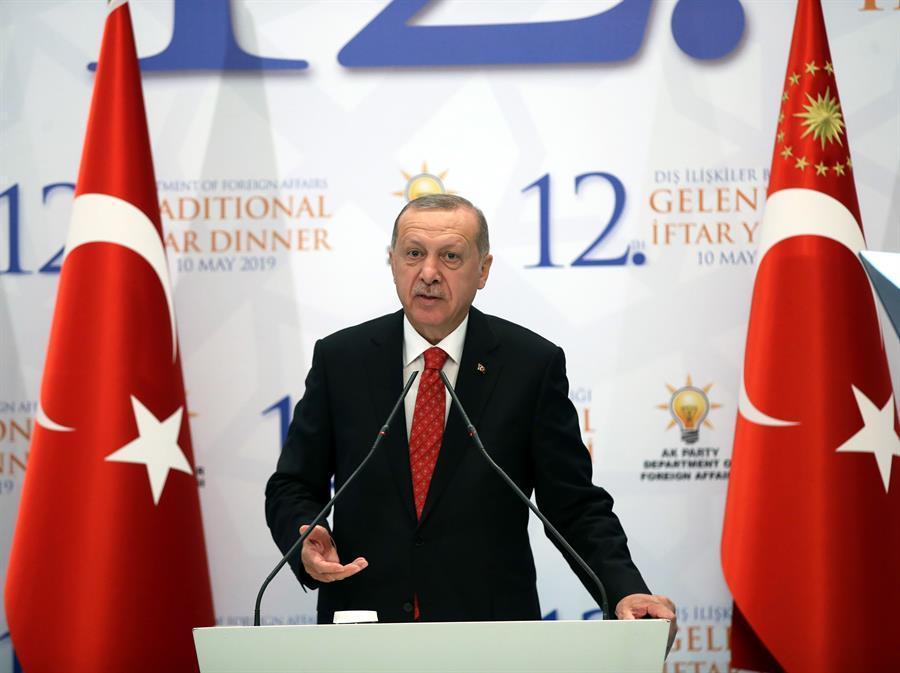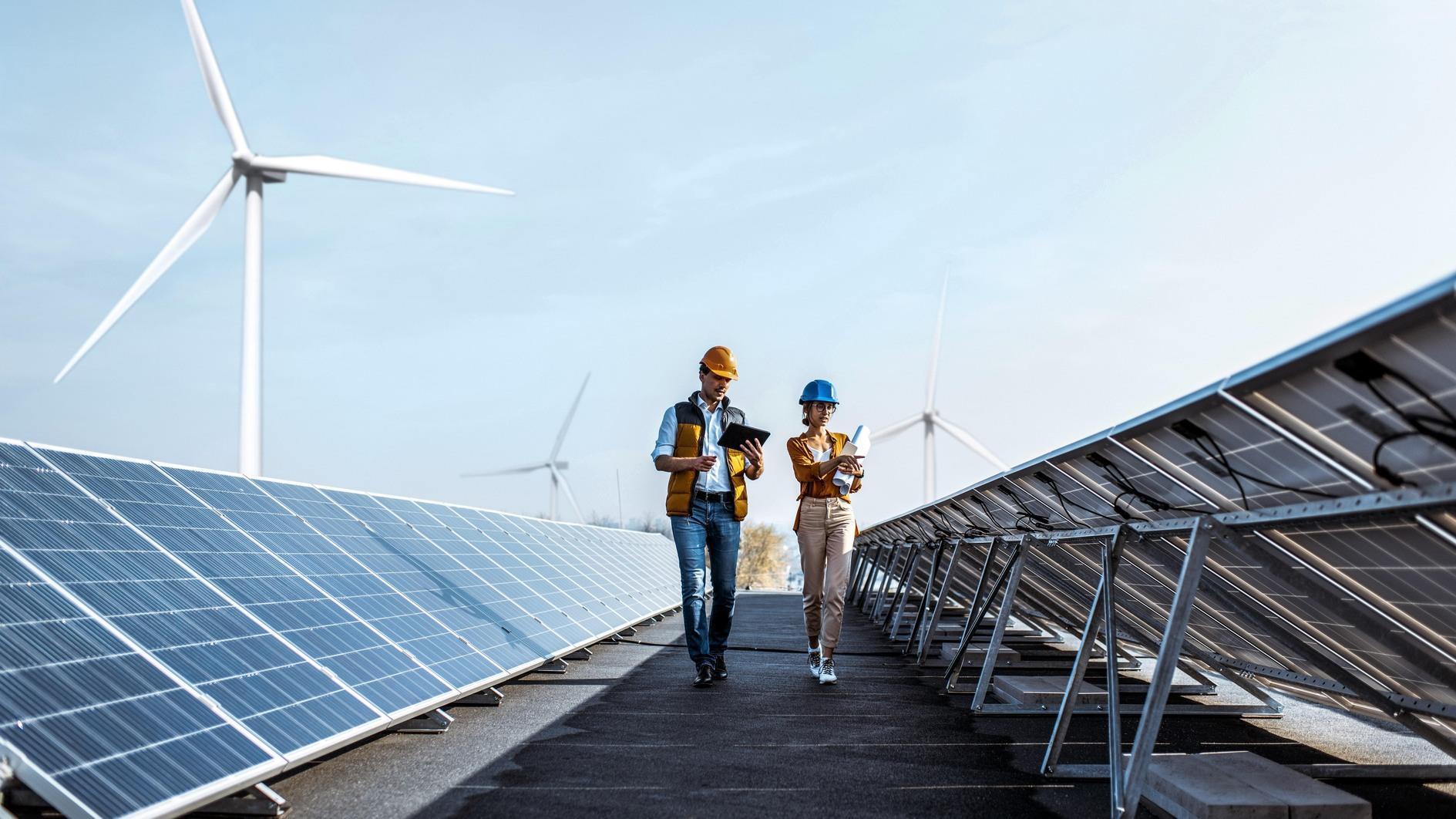Protecting Turkish Cypriot rights key for stability: Erdoğan
ANKARA- Anadolu Agency

President Recep Tayyip Erdoğan on May 10 said that for stability in the Eastern Mediterranean the rights and interests of Turkey and Turkish Cypriots must be protected.
“Stability in Cyprus and the Eastern Mediterranean is only possible by looking after the rights and interests of Turkey and the Turkish Republic of Northern Cyprus,” Erdoğan told ambassadors during the fast-breaking (iftar) meal organized at the ruling AKP headquarters.
Erdoğan reiterated that Ankara would not tolerate a fait accompli in the region, and all related parties are aware of the fact. “Like all problems, we want to solve this issue with reciprocal talks, dialogue and cooperation,” he added.
Cyprus has been divided since 1974, when a Greek Cypriot coup was followed by violence against the island's Turks and Ankara's intervention as a guarantor power.
It has seen an on-and-off peace process in recent years, including the collapse of a 2017 initiative in Switzerland under the auspices of guarantor countries Turkey, Greece and the U.K.
Turkey has consistently contested the Greek Cypriot administration’s unilateral drilling in the Eastern Mediterranean, saying Turkish Cypriots also have rights to the resources in the area.
Erdoğan said “rising intolerance, extremism, violence and terror” have become visible in every corner of the world, and added that such kind of ideologies separate individuals and societies.
He noted that especially the attacks in New Zealand and Sri Lanka portrayed the dangerous level at which terror and hatred had reached.
Erdoğan said that Turkey has suffered a lot from terrorism and has considerable experience fighting it. "For this reason, we are showing great effort to mobilize the world in the fight against terrorism and radicalization, which is an inseparable part of terrorism.”
Calling out double-standards in the fight against terror and rising extremist movements, Erdoğan noted that the PKK/YPG terror group was being tolerated and even “supported” all over Europe.
“Tens of thousands of truckloads of arms, vehicles and equipment are provided to terror groups in northern Syria for free and we are fighting against them now,” he said.
Erdoğan said that Ankara would soon clear Syria’s borders with Turkey of terrorists, allowing around 4 million Syrians to return home.
He also highlighted the rise in Islamophobic incidents and recalled that Turkey and the Organization of Islamic Cooperation (OIC) had called on the U.N. and other international and regional organizations to declare March 15 as "International Day of Solidarity against Islamophobia."
“We are expecting the support of your countries to realize our call,” he said.
On March 15, at least 50 Muslims were killed and as many injured when a terrorist shot worshippers in cold blood at two mosques in New Zealand.
Also on Easter Sunday, April 21, over 250 people were killed and 500 injured when eight explosions targeted churches and hotels in and outside Colombo, Sri Lanka’s commercial capital.
Touching on Israeli atrocities on Palestine, he urged all countries to be more sensitive about Palestine and Jerusalem, and also to take effective measures.
He also said that to cover its murders in Gaza Israel does not hesitate to bomb media outlets, including the Anadolu Agency office in Palestine, which was hit last week.
Also speaking about Turkey’s NATO membership, Erdoğan said: “We are a NATO member. So it is not possible for us to accept the wrongdoings of other NATO members toward us.
“You will be a NATO member; a strategic partner in NATO, then they will talk about sanctions against you. This is not something understandable.”
Noting that the situation does not suit a partnership, Erdoğan stressed that Turkey has been significantly contributing to the NATO alliance for over 60 years.
He also said that membership in the EU has always been Turkey’s strategic foreign policy target, but the bloc is trying to fool Ankara.
















